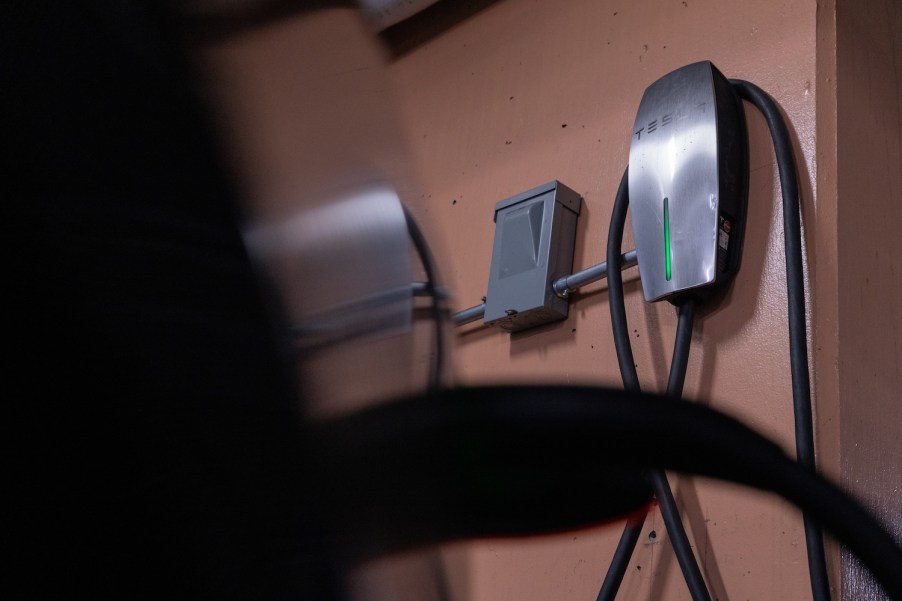
Your State Might Pay For Your Home EV Charger Installation
The good news is that EVs promise much lower “fuel” costs than traditional, internal combustion vehicles. The bad news is that the cost of lithium-ion batteries means EVs are more expensive than ICE vehicles. Worse yet, once you get your new EV home, buying and installing a Stage 2 charger could cost $1,300 or more. But there’s a silver lining: the Federal Government, your State Government, and even your local power company may pitch in to offset this cost.
How much does it cost to get a home EV charger installed?
According to J.D. Power the average home EV charger installation–including the price of the unit and other materials–is $1300. But based on your home and the charger you choose, this can vary widely.

That’s a huge range of EV chargers. One of the biggest differences is between indoor chargers and weatherproof chargers engineered for installation outdoors. Another big difference is between chargers with and without WiFi connectivity. You have more control over an EV charger with WiFi connectivity, even programming it up to only charge when electricity prices are low.
If you have a home that will require additional 220-volt wiring, or even a modification to your fuse box, this cost will likely be higher. But if you already have 220-volts wired to your garage it could be lower.
Can you get a tax break after installing a home EV charger?
Yes. There is a $1,000 federal tax rebate for home EV charger purchase and installation. Several states also offer a tax rebate for buying and installing a home EV charger.

You may have recently read that the federal tax rebate for home EV Charger purchase and installation was sunsetting. That’s because the program did end. But in 2022, the government renewed the program through 2032.
The federal home EV charger tax credit is officially called the Alternative Fuel Vehicle Refueling Property Credit. But if that’s too much of a mouthful, you can just call it the section 30C tax credit. It covers 30% of hardware and installation costs for home EV chargers, and it maxes out at a $1,000 rebate. So you would need to spend $3,000 on a charger to get that full $1,000 back on your taxes.
Can you get a free home EV charger and installation?
In addition to a $1,000 federal tax rebate and certain state tax rebates, many utility companies offer a rebate for buying and installing an EV charger. Finally, some automakers even offer cash back towards a charger when you buy an EV.

It makes sense that electric vehicle manufacturers would help you pay for a home EV charger. But why would a utility company help out? Simply put, a home EV charger may increase the amount of electricity you buy from them. In addition, if everyone invests in a smart charger, we may be able to reduce the load on the power grid during peak hours. To this end, some utility companies only offer incentives for smart chargers–or even chargers they can program.
The website Electrek.co has an excellent listing of EV charger rebates by state.
Next, learn if you can just plug your EV into your dryer outlet or see the best home EV chargers for yourself in the video below:



